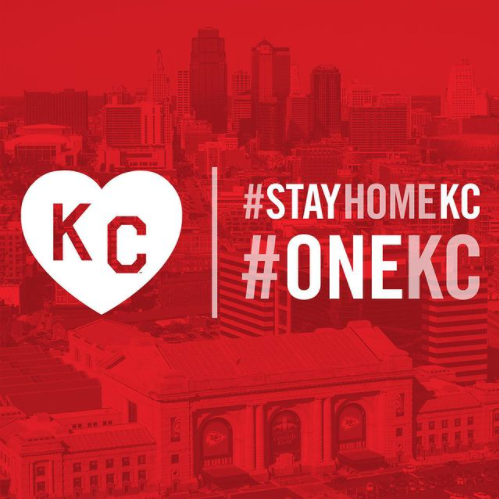Blog
The Top Urban Economic Development Initiatives of 2020
January 29, 2021 | Violet PR

The Top Urban Economic Development Initiatives of 2020
Despite everything 2020 threw at us, economic development groups across the U.S. launched new programs that successfully helped businesses, remote workers and new graduates stay afloat. Here is our list of 2020’s most influential urban economic development initiatives, based on creativity, strength of story and responsiveness to the needs of the community.
New Orleans, L.A.
Like most cities across the U.S., New Orleans was drastically impacted by the COVID-19 pandemic – arts, entertainment and recreation spending decreased by over 55%.
The New Orleans Business Alliance (NOLABA) was recognized by IEDC as a top economic development organization of the year for its adopted integrated business model that created a direct response during the COVID-19 pandemic, providing New Orleans’ small businesses and residents with $1.5 million in direct relief to date.

Kansas City, Mo.
 The Kansas City Area Development Council (KCADC) launched a new brand, @KCHeartland, to build a buzz for this beloved metro – emphasizing its culture, thriving business community and “heart.” The campaign kicked off in a big way last winter, when the Kansas City Chiefs won Super Bowl LIV.
The Kansas City Area Development Council (KCADC) launched a new brand, @KCHeartland, to build a buzz for this beloved metro – emphasizing its culture, thriving business community and “heart.” The campaign kicked off in a big way last winter, when the Kansas City Chiefs won Super Bowl LIV.
When the pandemic struck in March, the #KCHeartland campaign become a symbol of Kansas City’s pride and unified response: supporting social distancing measures, health care workers and small businesses.
The brand is getting additional attention now that the Chiefs are again playing in the Big Game!
Patrick Mahomes said it best: “KC is special and it’s where I want to be the rest of my career.”
Detroit, Mich.
The COVID pandemic made it essential for nearly every business, including boutiques and “mom and pop” stores, to sell their goods and services online.
To help, Detroit partnered with Rebrand Cities to create Digital Detroit, which aimed to get 10,000 small businesses online. Participants worked with trained web designers to build websites for their businesses. They also received three months of free website hosting, website development training and content creation assistance.

Topeka, Kan.
 Thanks to the Choose Topeka program in Kansas’ capital city, many talented, young professionals are gearing up for a change of scenery. Created by the Greater Topeka Partnership, this incentive program is available to remote workers as well as those relocating to Topeka for jobs.
Thanks to the Choose Topeka program in Kansas’ capital city, many talented, young professionals are gearing up for a change of scenery. Created by the Greater Topeka Partnership, this incentive program is available to remote workers as well as those relocating to Topeka for jobs.
With a median home price of $132,500 and average monthly rent of just $769, the area is already attractive from a cost-of-living perspective. This program makes it even more so by reimbursing applicants up to $15,000 for home buyers and $10,000 for renters signing a one-year lease.
But it’s not just about the money. Choose Topeka has also done a phenomenal job in selling the city itself. The program’s website spotlights the city’s top features, including its arts scene, infrastructure, cost of living and diversity using engaging short videos. The program gained quite a bit of traction in 2020 – receiving hundreds of applicants from across North America and even some from Europe, Asia and South America.
Savannah, Ga.
A similar program is currently underway farther south, in Savannah, Ga.
The Savannah Economic Development Authority (SEDA) established the Savannah Technology Workforce Incentive to lure out-of-state technology workers. The program reimburses individual moving expenses up to $2,000, which covers expenses such as moving service charges, vehicle rental, deposits and more.
SEDA President and CEO Trip Tollison noted, “This incentive is a great way for technology workers that can work remotely to think about relocating to Savannah as a permanent location. We know once these technology workers arrive, Savannah – and its diverse offerings and high-quality of life – will sell itself.”
With the COVID-19 pandemic making many wary of big-city living, it seems likely even more people will consider relocating in 2021 and beyond.

Pittsburgh, P.A.
Gaining hands-on industry experience or starting a career in 2020 seemed impossible for most college students and recent graduates across the U.S., but a program in Pittsburgh capitalized on the opportunity to attract a new pipeline of talent.
The Pittsburgh Passport program offered opportunities for students to connect with Pittsburgh’s wealth of high-tech companies – including those focused on robotics and autonomous vehicles – as well as professional services firms. While most internship programs were canceled or limited during the COVID-19 pandemic, the virtual program took on 1,700 participants from 170 universities, 41 countries, and 39 states. The program generated national attention for the program’s excellence, creativity and emphasis on diversity & inclusion initiatives.

Looking Ahead
So, what does 2021 have in store?
The current climate makes predictions difficult. However, you can expect to see new local economic development initiatives designed to assist ailing small businesses – especially “main street” restaurants and retailers. To attract talent, cities will continue to push unique lifestyle offerings, offer financial incentives and reach out to underserved communities.
Stay tuned to VioletPR.com for more information and similar programs in 2021!